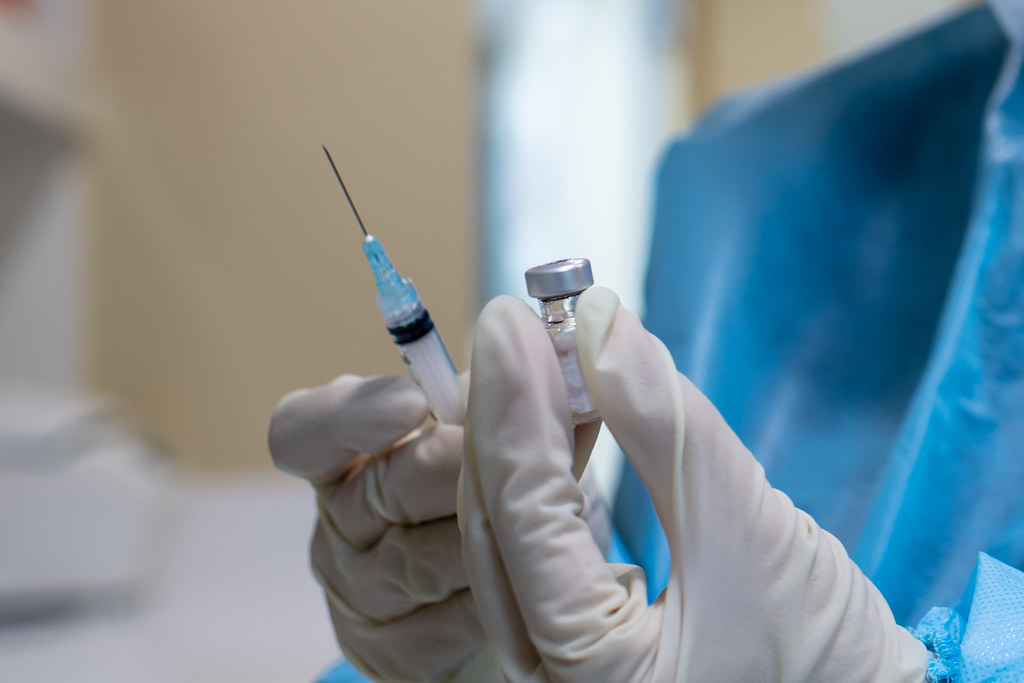Hope against HIV, the human immunodeficiency virus, is closer than any time before. A new vaccine against this virus has shown promise in Phase 1 trials, leading to the production of efficient antibodies in 97% of participants
HIV and AIDS, the condition it causes, are undoubtedly some of the most terrifying medical diagnoses one can hear today. Not only the horrendous symptoms, but also the fact that they’re incurable, make them so. But perhaps not incurable for much longer, as new research shows a promising way forward against this deadly disease and the pathogen that causes it.
Immunity at last
“We and others postulated many years ago that in order to induce broadly neutralizing antibodies (bnAbs), you must start the process by triggering the right B cells – cells that have special properties giving them potential to develop into bnAb-secreting cells,” explained Dr William Schief, a professor and immunologist at Scripps Research and executive director of vaccine design at IAVI’s Neutralizing Antibody Center, where the vaccine was developed.
“In this trial, the targeted cells were only about one in a million of all naïve B cells. To get the right antibody response, we first need to prime the right B cells. The data from this trial affirms the ability of the vaccine immunogen to do this.”
This vaccine, the product of a collaboration between the Scripps Research institute and non-profit IAVI draws on a novel vaccination approach to help patients develop antibodies against HIV. This approach involves triggering “naive B cells” in our bodies to produce broadly neutralizing antibodies that, in turn, fight the pathogen. It is hoped that these ‘bnAbs’ can attach to proteins called spikes alongside the surface of the HIV virus. These spikes stay very similar in structure and function across different strains of the pathogen, meaning the vaccine could be broadly efficient against it
This ability to function across strains is a major selling point of this vaccine. HIV affects over 38 million people worldwide but a cure has not yet been forthcoming because the virus has a very fast mutation rate, meaning it can adapt to our immune system and traditional treatment approaches.
The vaccine is meant to be the first in a multi-step vaccination program that aims to coax our bodies into producing a wide range of bnAbs’s, potentially helping against other viruses that have been eluding us so far, according to Europeanpharmaceuticalreview.
The Phase 1 trial included 48 healthy adults who received either a placebo or two doses of the vaccine compound along with an adjuvant developed by GlaxoSmithKline. By the end of the trial, 97% of the participants in experimental groups (i.e. that didn’t receive a placebo) had the desired type of antibody in their bloodstream.
This is the first time we’ve been successful in inducing secretion of broadly-neutralizing antibodies against HIV, the team explains, with lead investigator Dr. Julie McElrath, senior vice president and director of Fred Hutch’s Vaccine and Infectious Disease Division calling it “a landmark study in the HIV vaccine field”.
“This study demonstrates proof of principle for a new vaccine concept for HIV, a concept that could be applied to other pathogens as well,” says Dr Schief.
“With our many collaborators on the study team, we showed that vaccines can be designed to stimulate rare immune cells with specific properties and this targeted stimulation can be very efficient in humans. We believe this approach will be key to making an HIV vaccine and possibly important for making vaccines against other pathogens.”
Needless to say, since this was only a Phase 1 trial, we’re still a considerable way away from seeing this vaccine in a shot. However, the results do pave the way towards a Phase 2, and (hopefully) a Phase 3 for the drug. For the next step, the team is going to collaborate with biotechnology company Moderna to develop and test an mRNA-based vaccine for the same task as their current compound — if successful, this would considerably speed up the process.
Still, for now, the compound works as a proof of concept. It shows that our immune systems can be primed and prepared to face even terrifying pathogens. “This clinical trial has shown that we can drive immune responses in predictable ways to make new and better vaccines, and not just for HIV. We believe this type of vaccine engineering can be applied more broadly, bringing about a new day in vaccinology,” concludes said Dr. Dennis Burton, professor and chair of the Department of Immunology and Microbiology at Scripps Research, scientific director of the IAVI Neutralizing Antibody Center and director of the NIH Consortium for HIV/AIDS Vaccine Development.
The same approach can also be used to try and create new vaccines for other stubborn diseases like influenza, dengue, Zika, hepatitis C, and malaria, the team adds.
